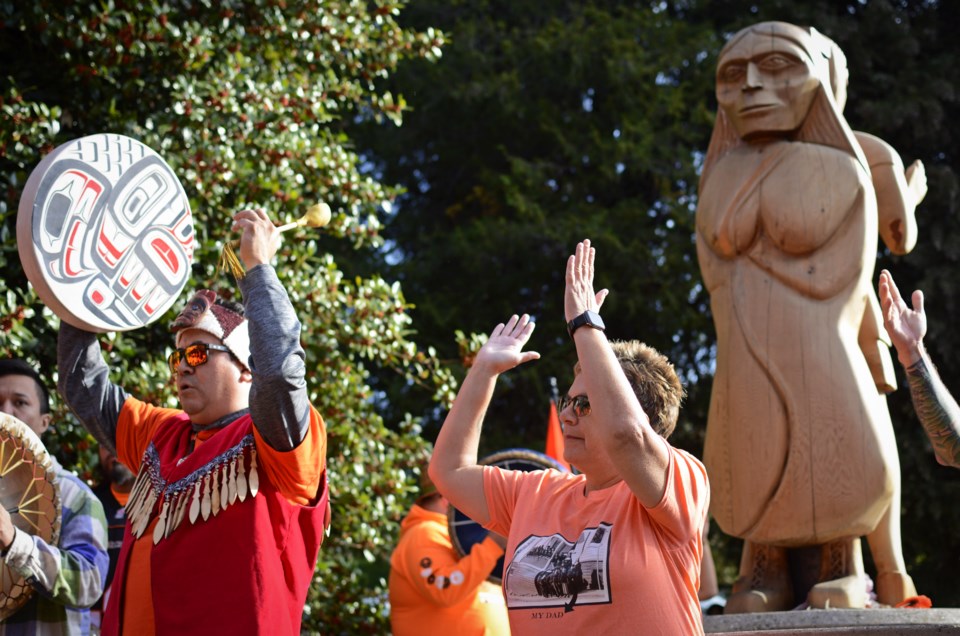Over the past few weeks, politicians have been particularly active in three Canadian provinces. British Columbians and Ontarians are in the middle of municipal election campaigns, and Quebec will hold its provincial ballot today.
As expected, housing has become a major point of contention in Metro Vancouver. In Quebec, health care is regarded as the most important challenge facing the province. Still, campaigns were compelled to observe, at least temporarily, the National Day for Truth and Reconciliation on Sept. 30.
Last year’s decision from the Montreal Canadiens to feature a territory acknowledgement before National Hockey League (NHL) games led to plenty of debate in Quebec. At the time, the province’s political leaders reacted differently when pressed for comment. One chose to leave the discussion to historians, another questioned the territorial validity of the claim and one more simply appreciated the gesture from the sports franchise.
Last year, Research Co. and Glacier Media asked British Columbians about territory acknowledgements and found a public that was at the same time welcoming and eager for more meaningful action. We decided to put the same questions to a representative sample of Canadians, to figure out if the practice is gaining prominence in other regions of Canada.
In our latest survey, just under two in five Canadians (39 per cent) say they have attended a ceremony, lecture or public event that featured a territory acknowledgement. British Columbia is in the middle of the pack at 44 per cent, unchanged since 2021 and below Alberta (46 per cent) and Manitoba and Saskatchewan (49 per cent). The proportions are significantly lower among Quebecers (36 per cent), Atlantic Canadians (also 36 per cent) and Ontarians (35 per cent). It is clear that western provinces are more committed to this issue.
There are significant age differences across the country. A majority of Canadians aged 18 to 34 (54 per cent) have been at a ceremony, lecture or public event where a territory acknowledgement was made. Fewer of their counterparts aged 35 to 54 (43 per cent) and aged 55 and over (22 per cent) share the same experience.
When Canadians ponder the ramifications of territory acknowledgements, there is a mixture of hope and dismay. More than half of Canadians (53 per cent) deem territory acknowledgements as a sincere and important practice. Those who voted for the Liberal Party of Canada and the New Democratic Party (NDP) in last year’s federal election are more likely to feel this way (65 per cent and 64 per cent, respectively) than those who cast ballots for Conservative Party of Canada candidates (49 per cent).
A higher proportion of Canadians (59 per cent) believe territory acknowledgements are a positive step towards reconciliation with Indigenous Peoples. This is an aspect where the feelings of Canadians of all ages are similar.
A hint of skepticism appears when almost three in five Canadians (57 per cent) call territory acknowledgements a lip-service gesture. This includes majorities of those aged 18 to 34 (58 per cent), aged 35 to 54 (61 per cent) and aged 55 and over (55 per cent).
More than three in five Canadians (63 per cent) say territory acknowledgements do little to address the problems facing Indigenous Peoples. Nowhere is this feeling more prevalent than in Alberta (72 per cent), but majorities of Canadians who reside in British Columbia (66 per cent), Ontario (64 per cent), Saskatchewan and Manitoba (62 per cent), Atlantic Canada (also 62 per cent) and Quebec (59 per cent) also believe that words must be accompanied by action.
At this stage, more than half of Canadians (55 per cent) think territory acknowledgements should be adopted widely before ceremonies, lectures and public events held in Canada. Again, a generational gap emerges. Canadians aged 18 to 34 are more likely to call for the blanket use of territory acknowledgements (62 per cent) than their counterparts aged 35 to 54 (57 per cent) and aged 55 and over (45 per cent). We have seen in past research how younger adults in Canada are more likely to have unfavourable views on Residential schools. This group is understandably more likely to embrace territory acknowledgements.
It is too early to tell where the country will go on the issue of territory acknowledgements. As we recently found out, Canadians are embracing “political correctness” at a time when Americans – who developed the term and championed the cause in the 1990s – are moving away from it. Residents of all ages and regions believe that territory acknowledgements are a positive step towards reconciliation. The important message from the survey is that Canadians want to see more meaningful measures to ensure that the problems facing Indigenous Peoples now are properly addressed. •
Mario Canseco is president of Research Co.
Results are based on an online study conducted from September 25 to September 27, 2022, among 1,000 adults in Canada. The data has been statistically weighted according to Canadian census figures for age, gender and region in Canada. The margin of error, which measures sample variability, is plus or minus 3.1 percentage points, 19 times out of 20.




